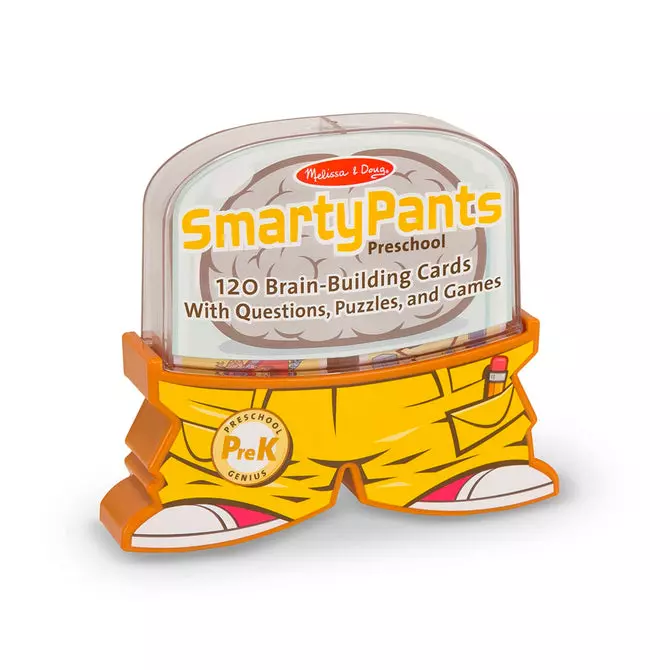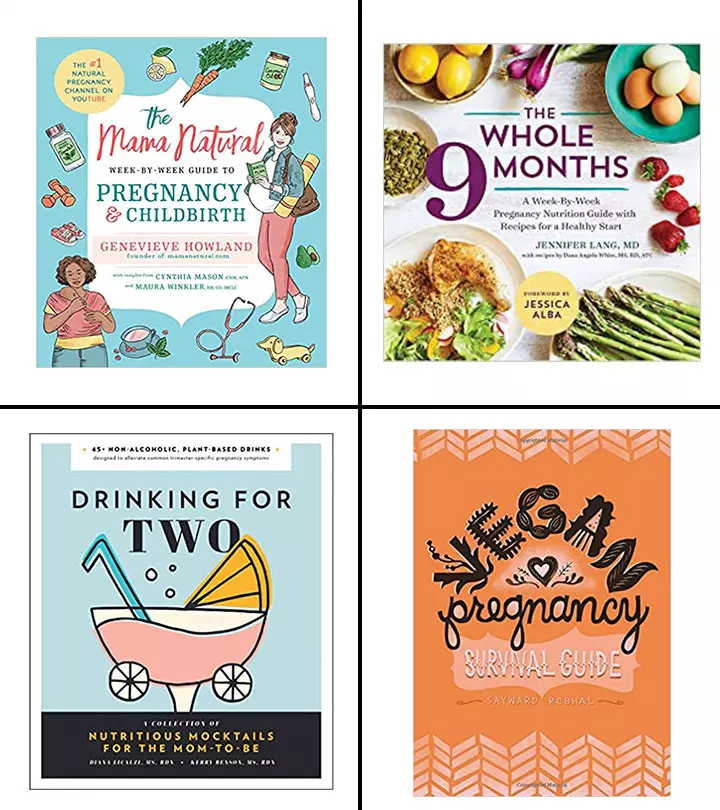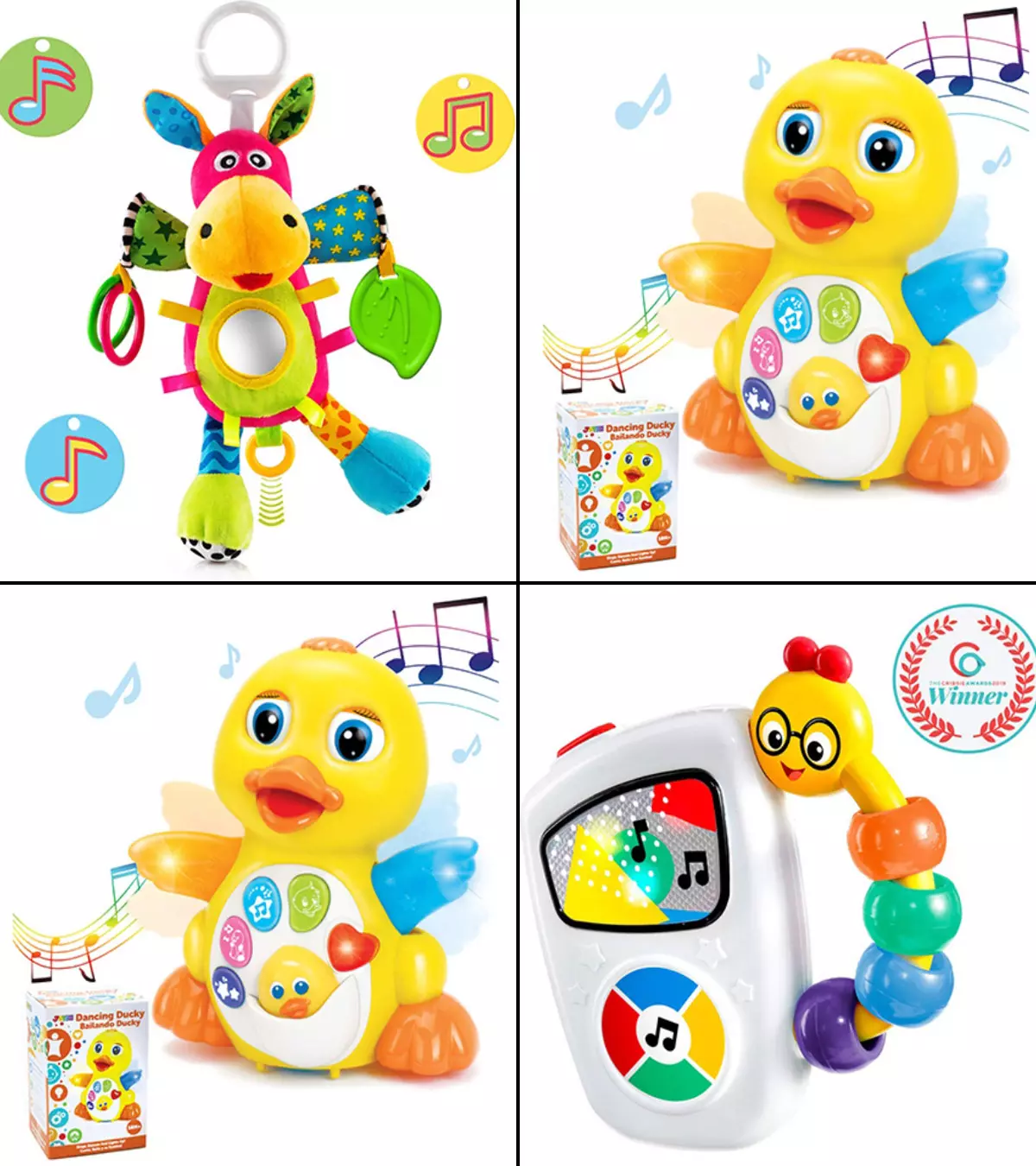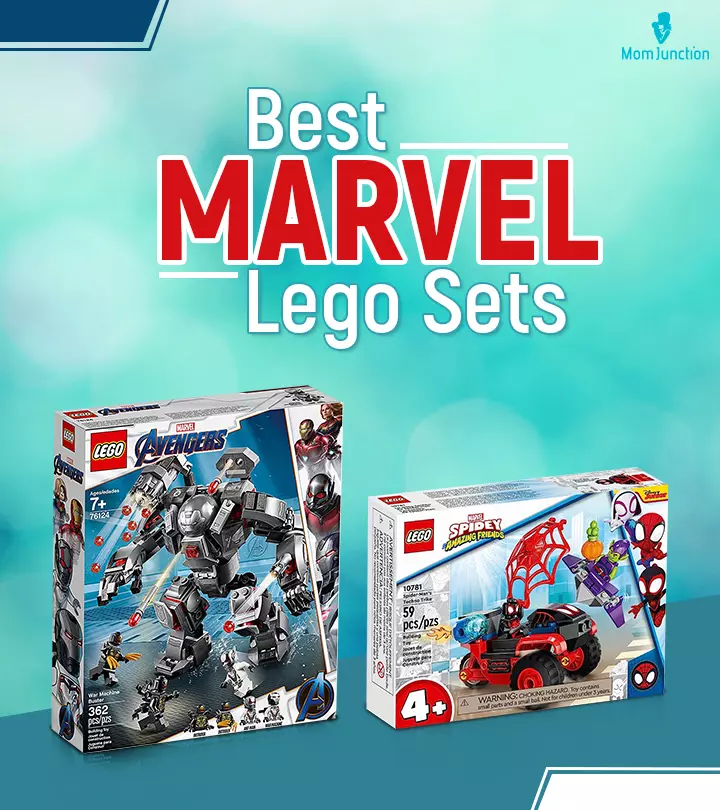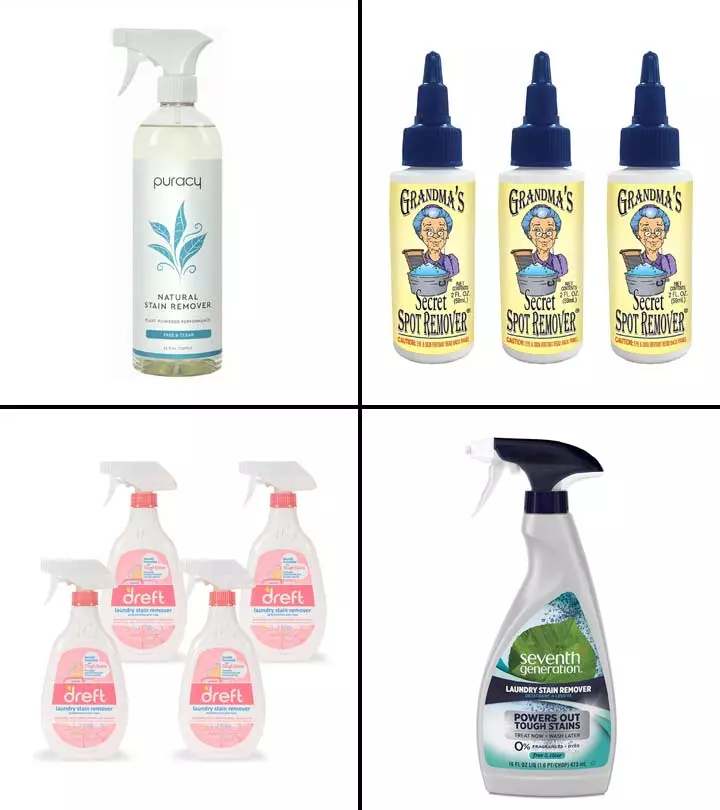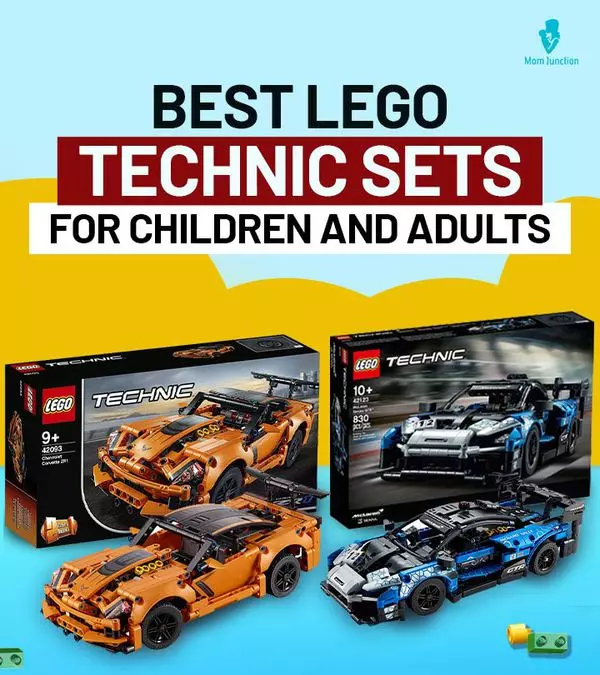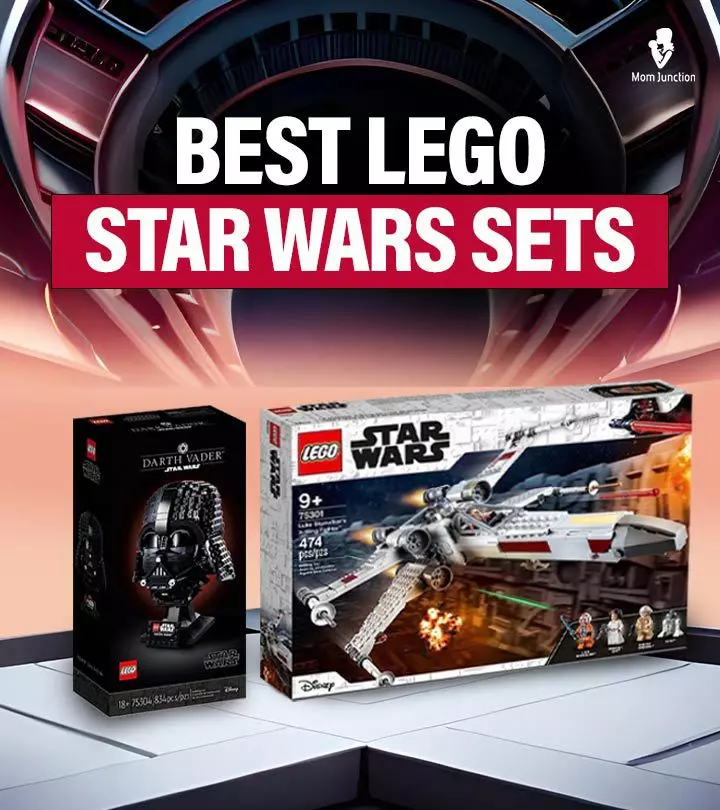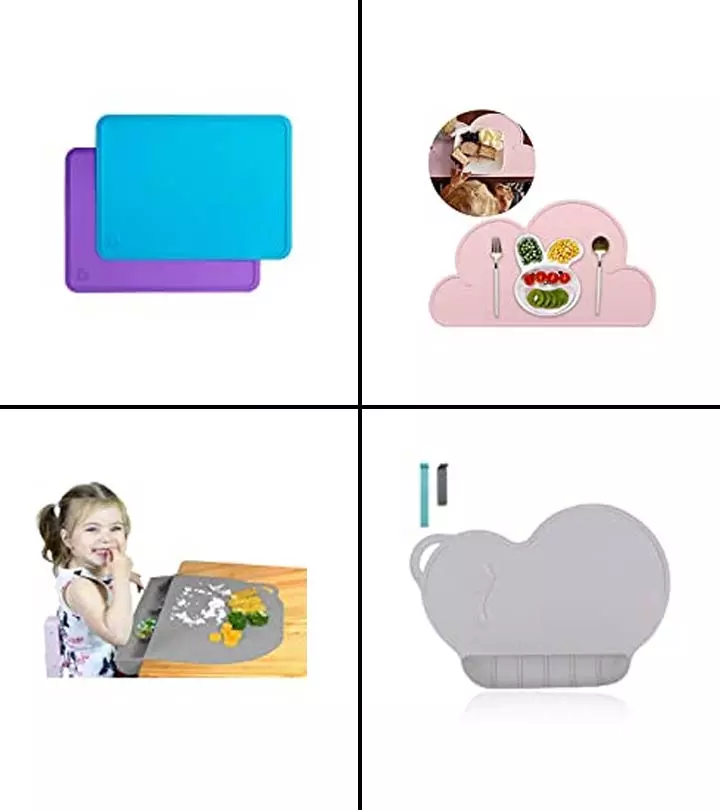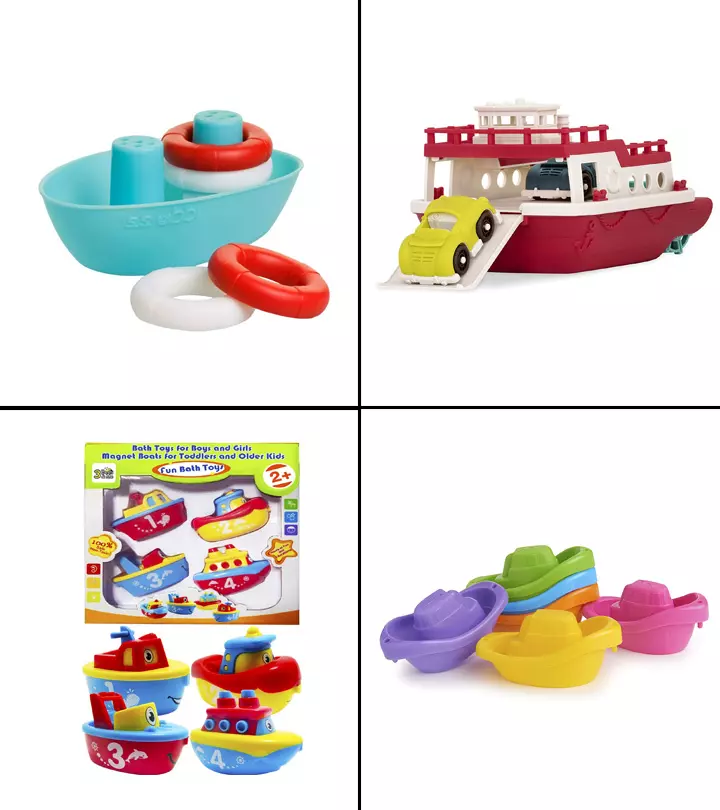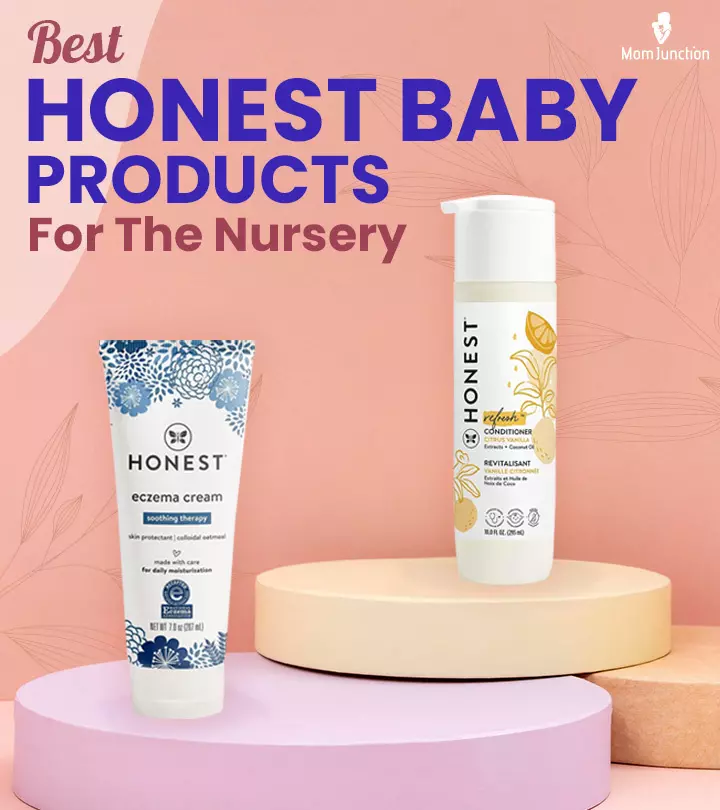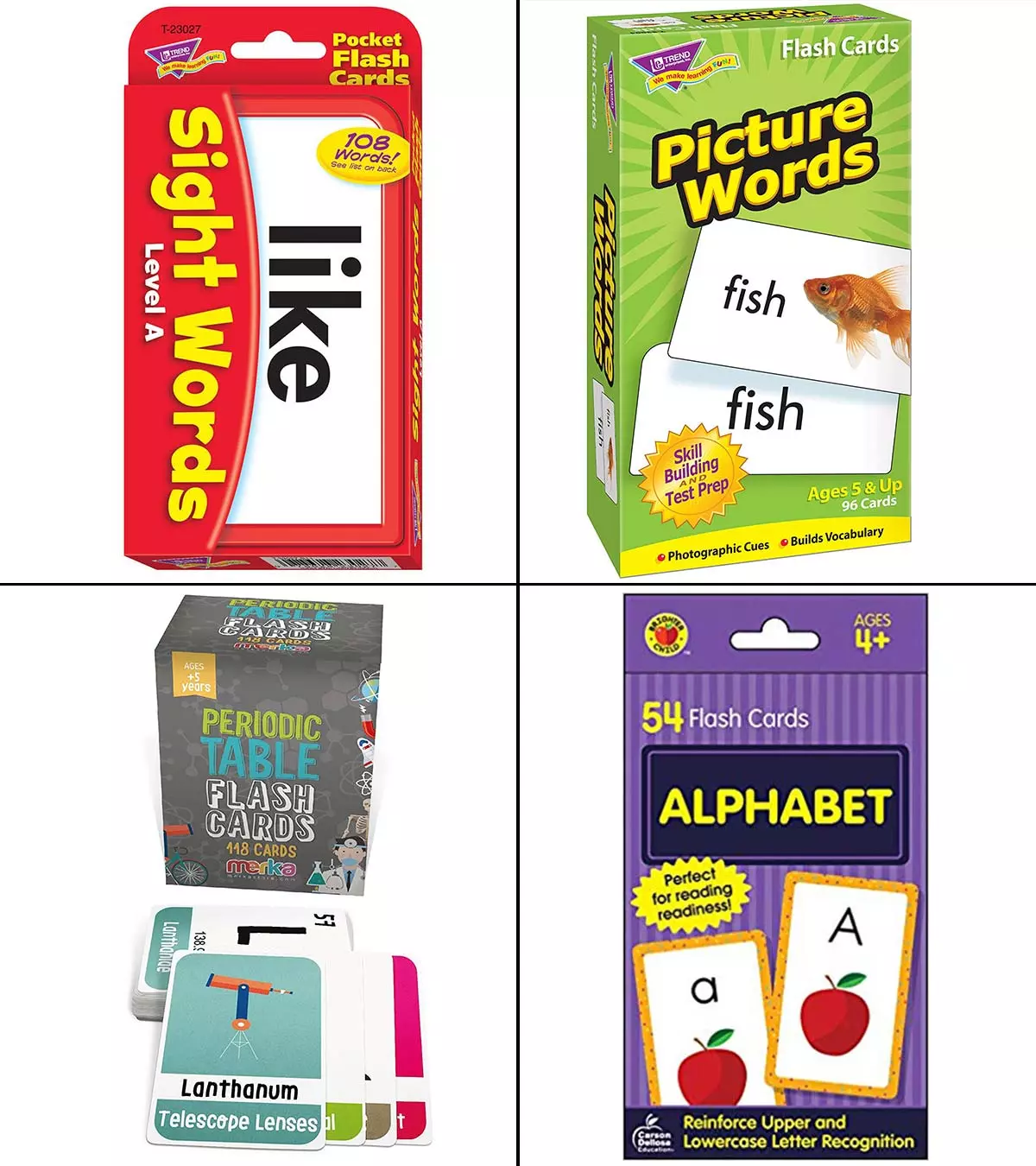
Image: MomJunction Design Team
Seeing and learning has proven to be one of the most effective ways to improve a child’s approach to learning a subject. Hence, investing in some of the best flashcards for kids is a good idea to explain concepts and help them retain them in their memory.
A flashcard is a card with information on both sides that aids in memorization. Flashcards are super fun to make and easy to understand, which is why many are teacher- and parent-recommended. Read on as we review some tried-and-tested and fun flashcards that can be used as educational tools for children.
Top Picks
11 Best Flashcards For Kids To Buy
1. Best For Improving Vocabulary: Think Tank Scholar Sight Words Flashcards
The flashcards by the trusted brand Think Tank are designed to make it convenient for a child to learn multiple words. You get five sets of cards, and every pack contains 54 sight word cards. Each laminated card has a word for practice, and there are a total of over 500 words in all. You may check more about this product from this video.
Pros
- Designed for children in pre-K, kindergarten, first, second, third grade, and fourth grade
- Cards can be used with six suggested teaching techniques to help kids learn words
- Cards can be used to play other fun games as well
- Angled edge makes it convenient to stack the cards in correct order
Cons
- Pre-K words might be slightly difficult
- Some children may find it challenging to understand the font
"The stand-out feature of these cards is the organized, graded system— it's really helpful for me to track my child's learning progress. Plus, they remain durable after multiple uses. All in all, it's been a good buy."
 Did you know?
Did you know?2. Best For Everyday Objects: Sight Words Level A Pocket Flashcards
The more words a child learns, the more confident they are using a language. Sight Words pocket flashcards help your child achieve that authority. This entertaining set includes 56 two-sided flashcards with a total of 108 words for a child to learn. Check out this product testing video to learn more.
Pros
- Rounded edge on each card allows stacking with the right orientation
- Wide assortment of words creates an opportunity to play a variety of fun games
- Cards are made from durable material
- Set can withstand long hours of play
Cons
- Parents will have to cover the other side of the card to hide the word
- Cards might be slightly bigger than pocket-sized
"The cards' clear, simple prints make it easier for my child to recognize the words. They've been beneficial for both memory retention as well as pronunciation exercises. The dual-side design is fun, but it tends to limit the range of activities. Despite that, it's definitely a stepping stone in early learning."
3. Best Durable And Angled Edges: Picture Words Flashcards
If you want to teach your child about animals, clothing, and everyday objects, then these flashcards can be a good pick to serve that purpose. The 96 cards are divided into various categories, such as animals, clothing, transportation, colors, safety signs, common shapes, and common objects. These spelling flashcards can also be used for improving pronunciation and spelling.
Pros
- Pictures instead of illustrations makes it more convenient for a child to understand objects
- Letters and images are large enough for a child to read even from a distance
- Cards are durable and have angled edges for easy stacking
- Enough grip for kids to hold and play with
Cons
- Some pictures might be confusing
- Cards are not waterproof or laminated
"Playing with these flashcards with my kids is always fun! The simple, easy-to-read fonts encourage learning new words and reinforce vocabulary. It is a solid educational tool and has been a lovely addition to my children's playtime."
4. Best Interactive: The Bambino Tree Phonics Flash Cards
The colorful flashcards can help your child focus on the phonetic sounds of words as they learn to read. The engaging visual content of the cards captivates your child’s attention, making learning fun and entertaining. Suitable for homeschooling, preschool, and kindergarten use, this set has four difficulty levels and can continue to be used as your child grows up and begins grasping more complex phonetics.
Pros
- Four rings per set to sort the cards
- Teacher- and parent-recommended
- Rounded edges of the card make it convenient to hold
- Durable and good-quality material
Cons
- May not have an instruction manual
- Font may be slightly small for some
"I like how cleverly designed these cards are, with the right level of challenge to encourage my little learner. The cheerful illustrations are a major plus—they don't let him get bored. Also, they're sturdy and can withstand rough use."
 Quick fact
Quick fact5. Best Versatile: ThinkPsych Picture Play Flash Cards
The ThinkPsych picture cards can help your child learn new words, assist in speech therapy among children and adults, and are suitable for ABA therapy. They have versatile applications and can be used for identification, matching, sorting, and reading. These safe reading flashcards are certified non-toxic, BPA-free, and CPSIA-compliant.
Pros
- Durable and thick cards
- Easy to wipe clean as the cards are laminated
- Includes four language games
- Bright, engaging illustrations
- Bonus words on each card
Cons
- Multiple styles of imagery for the same word might seem repetitive
- May not cover enough words
"These cards remain a solid pick for encouraging my children's speech development and cognitive skills. The clear, vibrant images make the learning process more entertaining. Also, they're easy to clean—a plus for accidental mess."
6. Best For Teaching Multiplication And Division: Three-Corner Multiplication and Division Flashcards
The flashcards are shaped like a triangle and help the child grasp the math concepts of multiplication and division. Each corner of the math flashcards has a number on both sides. The set consists of 46 cards. The red-colored numbers in each of the two corners have to be multiplied to achieve the answer, printed in purple on the third corner of the triangle.
Pros
- Fun to hide the answer and leave the child to do the math
- Notch at the bottom makes it easy to stack the cards in the correct order
- Cards come in a cover shaped like a triangle for a snug fit
- Durable
Cons
- Some cards might contain a misprint
- Might be difficult to hold
"I was looking for an entertaining way to improve my kid's math skills when I landed on this set. These cards have helped a lot in teaching my son multiplication and division. They seem sturdy, too. Overall, I'm pleased with them!"
7. Best For Teaching The Alphabet: Brighter Child Alphabet Flashcards
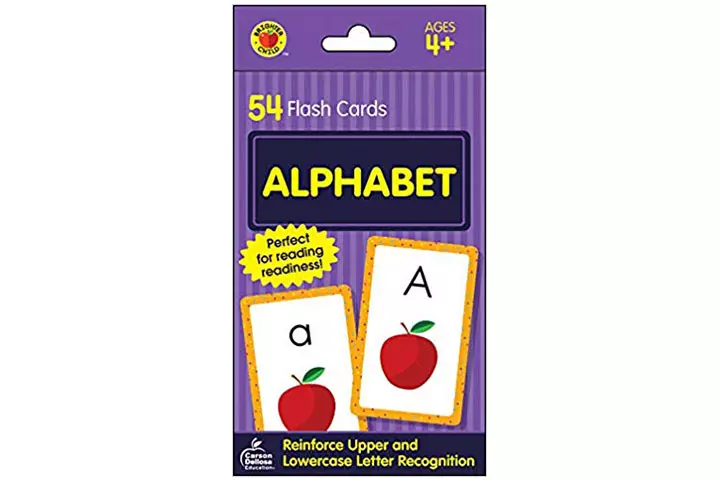
Cartoon illustrations make learning letters fun. These cards cover all letters of the alphabet. The pack consists of 54 cards. Each card has an illustration of an animal or an object with a name that starts with the letter.
Pros
- Lack of object name creates opportunity for parent-child interaction
- Drawings of animals, fruits, and other objects are interesting and attractive
- Contains a card each for the letter’s uppercase and lowercase version
- Includes bonus and parent cards for more activities
Cons
- Cards might fold with rough play
- Might not be challenging enough for some children
8. Best For Improving Memory And Learning: Melissa & Doug Smarty Pants Preschool Card Set

The Smartypants set of cards by the trusted brand Melissa & Doug comes neatly stacked in a container resembling a pair of trousers. Each set consists of 120 durable cards, stacked in two rows within a case covered by a plastic lid.
Pros
- Includes a variety of teaching techniques, including tongue-twisters, picture puzzles, mazes, math challenges, vocabulary builders, etc.
- Each card contains an illustration that makes learning and memorizing easy
- Four options, each targeted at children of a specific age group: kindergarten, preschool, first grade, and second grade.
- Developed with the input of educators
Cons
- Questions may not be challenging enough for some children
- Font may be slightly small for some
9. Best For Developing Numerical Skills: School Zone Numbers 1-100 Flashcards

A child who is learning basic math will spend a lot of time counting from numbers 1 to 100. Make that enjoyable with the use of these 1-100 flashcards. The numbers 1-50 are written on one side of the card while the numbers 51-100 are written on the other side.
Pros
- Game limits the number of cards used and helps save space
- Single rounded edge makes it easy to stack the cards in correct orientation
- Bonus cards help teach the child odd and even numbers
- Large font size of numbers makes it easy for a child to read
Cons
- All 100 numbers not visible at the same time
- May be only laminated on one side
 Quick tip
Quick tip10. Best For Communication Skills: Carson Dellosa Key Education Early Learning Language Library Cards
The expert-approved language library flashcards help develop communication skills among young children. They also encourage the expression and understanding of your children’s daily emotions. Designed by former Special Education teachers, they help build social skills and behavioral management of children with diverse learning needs, encouraging them to express themselves clearly.
Pros
- Guide includes additional questions
- Large in size with clear pictures
- Includes 11 different categories
- Can complement your child’s growing needs
Cons
- Some visual content may be outdated
- Cards may fold with rough play
"The large, clear images of these cards have a special appeal to my children. They help my kids learn the correct pronunciation of words and develop vocabulary skills. Also, the included word list and categorized tabs have come in handy to simplify learning."
11. Best Portable: Coogam Sight Words Educational Flashcards
The set of laminated cards comes in five color-coded decks, from levels pre-k to third grade, for easy sorting. You can map your child’s progress as they gradually work through the different decks. The flashcards help build your child’s vocabulary, sentence fluency, and memory. They can also develop communication skills with the help of the questions provided. The questions can act both as conversation starters and as logical reasoning prompts.
Pros
- Colorful and vivid pictures for visual learning
- Rings for easy sorting
- Portable because of compact size
- Wipeable coating for easy clean up
Cons
- Some decks may not have pre-punched holes
- May get damaged when wet
"My little one has shown remarkable improvement in reading and speech thanks to these engaging flash cards. They're sturdy and serve as a great alternative to formal reading practices. I'm pleased with them!"
What Are Flashcards?
A flashcard contains a question or image on one side with an answer or explanation on the other. Some flashcards contain text and illustration on one side, with additional illustrations plus the description on the other.
Flashcards are great for early childhood education, as they make it convenient for a child to understand and memorize various concepts and are useful to teach multiple school subjects.
Heather Welch, a mom, play advocate, educator, and developer of educational toys says, “A great way to play and learn together and build a connection with your child is by using number and letter flashcards. You can also use these flashcards to develop your children’s communication and language skills while having fun.”
How To Choose The Right Flashcards For Kids?
Remember the following points when selecting flashcards for a child.
- Ease of understanding: A card with a question on one side and the answer on another is simple and easy to understand, making it suitable for tutoring.
- Large font: Give preference to cards that feature letter and numbers printed in large fonts. Large fonts make it easy to read and help toddlers process the information faster.
- Attractive illustrations: Drawings and colorful illustrations of animals or popular animated characters may increase a child’s interest in learning, thus making learning interesting.
- Easy to organize: Some flashcards manufacturers punch a hole at the corner of the cards and provide a metal ring to stack the cards together. Such features could help parents organize the cards neatly after playtime.
- Reviews: Go through the user reviews to find flashcard sets that are safety-tested and parent-recommended to ensure the best for your child.
Why Trust MomJunction?
Priti Bose is an experienced writer and product reviewer specializing in kids’ products, gifts, and toys. In this article, she has reviewed the best flashcards for kids and has included a buying guide with all the important details. Her review process involves comparing products based on specific criteria as well as user reviews and developing a list of the top-rated ones. These flashcards from trusted brands will help your child memorize and retain concepts easily.
The Bottom Line
Using flashcards is a fun way to teach children numbers, the alphabet, words and phrases, animal names, and more. Children learn better when you use fun props, and as flashcards are colorful, they help grab children’s attention and help them remember things for a longer duration. When buying a set of flashcards, ensure it is attractive enough to capture your child’s attention, such as the Coogam Sight Words Educational Flashcards. The cards must be fun to stack and organize, like the Picture Words Flashcards, and have large fonts and interesting illustrations to make the learning experience more fun. Also, ensure these cards have smooth edges, like the Think Tank Scholar Sight Words Flashcards, and are made of durable materials.
Infographics: What Are The Different Kinds Of Flashcards?
Flashcards are one of the most engaging educational tools that help your child learn the alphabet, numbers, basic mathematical concepts, and much more. They contain colorful visual elements enabling kids to retain information more effectively. Check out the following infographic to learn about the types of flashcards that you can add to your kid’s collection.

Illustration: Momjunction Design Team
References
- The Utilization of Flashcards in Children Information Literacy Development
https://digitalcommons.unl.edu/cgi/viewcontent.cgi?article=8239&context=libphilprac
Community Experiences
Join the conversation and become a part of our nurturing community! Share your stories, experiences, and insights to connect with fellow parents.
Read full bio of Heather Welch
Read full bio of Pratibha Bagdy
Read full bio of Wedetso Chirhah
Read full bio of Nisha Bharatan












